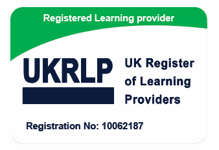English Legal System
Free E - Certificate Included | CPD & IAP Accredited | Access for 365 days | No Hidden Fee
Study365
Summary
- Exam(s) / assessment(s) is included in price
Add to basket or enquire
Overview
Certificate in English Legal System
Get the career you want and become a skilled legal professional with Study365. This English Legal System course is comprehensive and covers all the fundamentals of the court system, employment law, and sources of law. Learners will come away with a firm grasp of the roles and responsibilities in the English Legal System, so you can enter the profession with confidence and success.
Learning with Study365 has many advantages. The course material is delivered straight to you, and can be adapted to fit in with your lifestyle. It is created by experts within the industry, meaning you are receiving accurate information, which is up-to-date and easy to understand.
This course is comprised of professionally narrated e-Learning modules, interactive quizzes, tests and exams. All delivered through a system that you will have access to 24 hours a day, 7 days a week for 365 days (12 months). An effective support service and study materials will build your confidence to secure your qualification.
* Free E-certificate (No additional cost for E-certificates)
Why You Should Choose Study 365
- 12 months Access to your course.
- The price shown on Reed is for the whole course, including the final exam and free e-certificate.
- CPD and iAP accredited certificate upon successful completion
- Tutor Support available Monday – Friday
CPD
Course media
Description
Course description:
This online training course is comprehensive and designed to cover the topics listed under the curriculum.
Course Curriculum
[Module 01] Introduction To The English Legal System
- Introduction
- How to Answer Law Questions
- Part 1: The English Legal System
- Introduction to the English Legal System
- Introduction
- Learning Objectives
- Meaning of Law
- The Constitution
- Separation of Powers
- The Rule of Law
- The UK Constitution
- Sovereignty of Parliament
- Classifications of Law
- Evidence
- Appeals
- Judicial Review
- Who Can Sue or Be Sued
- Parties to a Legal Action
- Law Reports
- Chapter Summary
- Practice Questions
[Module 02] Sources Of English Law
- Introduction
- Learning Objectives
- Common Law
- Judicial Precedent or Case Law
- Equity
- Legislation or Statute
- Delegated or Secondary Legislation
- European Union Law
- Chapter Summary
- Practice Questions
[Module 03] Interpretations Of Statutes
- Introduction
- Learning Objectives
- General Approach to Statutory Interpretation
- The Literal Rule
- The Golden Rule
- The Mischief Rule
- The Purposive Rule
- Other Rules Of and Aids to Interpretation
- Presumptions Relating To Statutes
- Chapter Summary
- Practice Questions
[Module 04] The Court System
- Introduction
- Learning Objectives
- Tribunals
- Magistrates’ Courts
- County Courts
- Crown Court
- High Court
- Court Of Appeal
- Supreme Court
- Court Of Justice of the European Union
- The European Court Of Human Rights
- Chapter Summary
- Practice Questions
[Module 05] Formations Of Contracts
- Introduction to Contract Law
- Learning Objectives
- Meaning of Contract
- Formation of Contract
- Offer
- Acceptance
- Consideration
- Intention to Create Legal Relations
- Relevant Form
- Privity of Contracts
- Chapter Summary
- Practice Questions
[Module 06] Contract Terms
- Introduction
- Learning Objectives
- Express Terms
- Implied Terms
- Nature of Terms
- Exclusion or Limitation Terms
- Chapter Summary
- Practice Questions
[Module 07] Discharge Of Contract
- Introduction
- Learning Objectives
- Discharge by Performance
- Discharge by Agreement
- Discharge by Frustration
- Discharge by Breach
- Remedies for Breach Of Contract
- Chapter Summary
- Practice Questions
[Module 08] Vitiation Of Contracts 1 Misrepresentation, Duress And Undue Inlfuence
- Introduction
- Learning Objectives
- Misrepresentation
- Duress
- Undue Influence
- Chapter Summary
- Practice Questions
[Module 09] Vitiation Of Contract 2 Mistake, Illegality And Incapacity
- Introduction
- Learning Objectives
- Mistake
- Illegality
- Incapacity
- Chapter Summary
- Practice Questions
[Module 10] Negligence
- Introduction
- Learning Objectives
- Meaning of Negligence
- Conditions for Negligence Liability
- Proof of Breach of Duty
- Factual Causation
- Legal Causation
- Negligence Defenses
- Chapter Summary
- Practice Questions
[Module 11] Negligence: Special Duty Situations
- Introduction
- Learning Objectives
- Emergency Services and Public Bodies
- Pure Economic Loss
- Psychiatric Injury
- Chapter Summary
- Practice Questions
[Module 12] Occupiers’ Liability
- Introduction
- Learning Objectives
- Meaning of Premises
- Meaning of Occupier
- Meaning of Visitors
- Duty to Visitors
- Non-Visitors
- Chapter Summary
- Practice Question
[Module 13] Nuisance
- Introduction
- Learning Objectives
- Private Nuisance
- Public Nuisance
- Remedies in Nuisance
- Defences for Nuisance
- The Defendants in Private and Public Nuisance
- Statutory Nuisance
- Chapter Summary
- Practice Questions
[Module 14] Liabilities For Harmful Escapes
- Introduction
- Learning Objectives
- The Tort: The Rule in Rylands V Fletcher
- Right of Action
- The Proper Defendant
- Recoverable Damages
- Defences
- Chapter Summary
- Practice Questions
[Module 15] Economic Torts
- Introduction to Economic Torts
- Learning Objectives
- Inducing Breach of Contract
- Causing Loss by Unlawful Means
- Unlawful Means Conspiracy
- Lawful Means Conspiracy
- Chapter Summary
- Practice Questions
[Module 16] Employment Law: Types Of Employment
- Introduction
- Learning Objectives
- Types of Employment
- Determination of Type of Contract
- Differences in the Treatment of Employees and Independent Contractors
- Vicarious Liability
- Form and Particulars of Employment Contract
- Duties of the Employer
- Duties of the Employee
- Workers
- Chapter Summary
- Practice Questions
[Module 17] Employment Contract: Termination And Remedies
- Introduction
- Learning Objectives
- Termination by Notice
- Termination by Summary Dismissal
- Unfair Dismissal
- Constructive Dismissal
- Redundancy
- Termination by Agreement
- Termination by Frustration
- Remedies for Breach of Employment Contract
- Chapter Summary
- Practice Questions
Method of assessment:
At the end of the course, learners will also take an online multiple-choice questions assessment test. This online multiple choice questions test is marked automatically so you will receive an instant grade and know whether you have passed the course.
Certification:
Learners who successfully complete this course will be awarded a certificate in The English Legal System.
Who is this course for?
- Our courses will best suit those who would like flexible learning that can fit in around work and childcare.
- This course is suitable for those who would like to become a solicitor or lawyer.
- This course would be suitable for school leavers and job seekers.
- This job would be suitable for those who would like to progress to higher level study of the subject.
Requirements
This course requires no formal prerequisites and this certification is open to everyone
Career path
Studying the English Legal System will mean that you can kick start a career in law, or go on to a higher study of the subject.
You could become any of the following:
- Solicitor
- Lawyer
- Counselor
- Barrister
- Chartered Legal Executive
Questions and answers
I am retired and want to do a short law course. Don't have the money for long course but want all round understanding of the law at good level.
Answer:Dear Joan Thank you very much for your query. This is the ideal course for you. The offer ends tomorrow, so hurry up and get the discount as you will receive 24/7 access for 365 days. Regards, Student Support Team.
This was helpful.
Reviews
Legal information
This course is advertised on reed.co.uk by the Course Provider, whose terms and conditions apply. Purchases are made directly from the Course Provider, and as such, content and materials are supplied by the Course Provider directly. Reed is acting as agent and not reseller in relation to this course. Reed's only responsibility is to facilitate your payment for the course. It is your responsibility to review and agree to the Course Provider's terms and conditions and satisfy yourself as to the suitability of the course you intend to purchase. Reed will not have any responsibility for the content of the course and/or associated materials.




